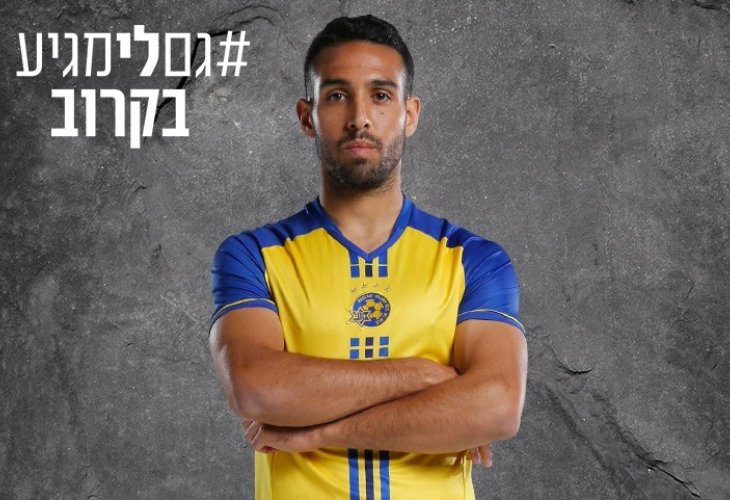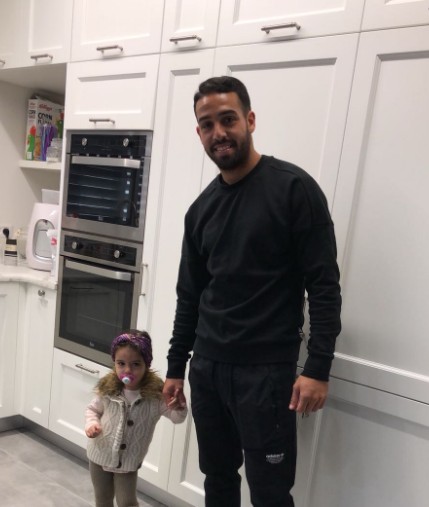Shabbat
From the Soccer Field to the Shabbat Table: Eyal Golasa’s Game-Changing Commitment
How one of Israel’s top athletes made Shabbat the centerpiece of his life on and off the field
 Eyal Golasa
Eyal GolasaA Teenager’s Turning Point
Eyal Golasa, 26, a professional soccer player from Netanya, has been playing for Maccabi Tel Aviv for the past two years. But long before that, he made a decision that would reshape his life. At age 17, he began observing Shabbat and he’s never looked back.
“I always felt connected to Judaism,” Golasa shares ahead of his appearance on a special Hidabroot broadcast (#I_Deserve_This_Too campaign). “But when I started attending Torah classes in my neighborhood, it really resonated with me. It gave me strength, so I kept going.”
Now married with two daughters, ages three and one and a half, Golasa reflects on that moment as a major milestone. “Only now do I realize how big that decision really was.”
 Golasa with his sweet daughter Adele, age three
Golasa with his sweet daughter Adele, age three“For me, Shabbat is pure quality time with the family. It connects us in a unique way. We have delicious meals, peace and quiet, and no TV or phones. Without Shabbat, I’d feel a huge void. Shabbat has a holiday-like atmosphere. There’s nothing like it.”
Even with the demanding schedule of a professional athlete, Golasa makes the most of Shabbat. “If I have a morning practice, I rest in the afternoon. I try to go to the mikveh (ritual bath) in the morning. There are prayers at synagogue, meals at my wife’s parents’ house, at my grandmother’s, or at home. We walk everywhere, of course, and that time becomes an opportunity for deep conversations with my wife and daughters.”
His synagogue of choice is a nearby Sephardic congregation. “I’ve been going there for two years. What I love most is that everyone feels like family. Sometimes we host meals with Torah classes, and everyone brings something. The atmosphere is warm and homey."
While Golasa admits he’s not a big reader, Shabbat brings out a different side of him. “I gain a lot from the weekly Torah pamphlets at shul, and I love reading books on the laws of Shabbat.”
Passing It On to the Next Generation
Even in gatherings with extended family who aren’t fully observant, the spirit of Shabbat is present. “There’s Kiddush and a real Shabbat feeling. Not everyone is Shabbat observant, but they respect us when we come. It’s always a pleasure to be together.”
During the week, Golasa’s time is devoted to intense training. But Shabbat is when his most meaningful moments happen. “That’s when I get quality time with my family, especially my daughters. My three-year-old, Adele, tells me about her week in preschool. She already talks about what Shabbat means and why we keep it.”
He beams with pride at her early education. “She explains things like the 'Asher Yatzar' blessing (the blessing recited after using the bathroom) with such clarity. It's amazing. These are things I’ve always wanted my kids to grow up with.”
When Shabbat ends, Golasa performs havdalah, the ceremony marking the conclusion of Shabbat. Then, it's family time. “We usually go out to eat, sometimes frozen yogurt, sometimes pizza. We’re the kind of family that loves to get out of the house. My family is everything to me, and I’ll do whatever I can to make them happy.
For Eyal Golasa, Shabbat isn’t just a day of rest. It's a weekly reset that brings peace, meaning, and connection. In a high-pressure career defined by physical endurance and competition, Shabbat offers him a different kind of strength: the joy of family, the power of tradition, and the spiritual grounding that keeps him centered no matter what game he's playing.

